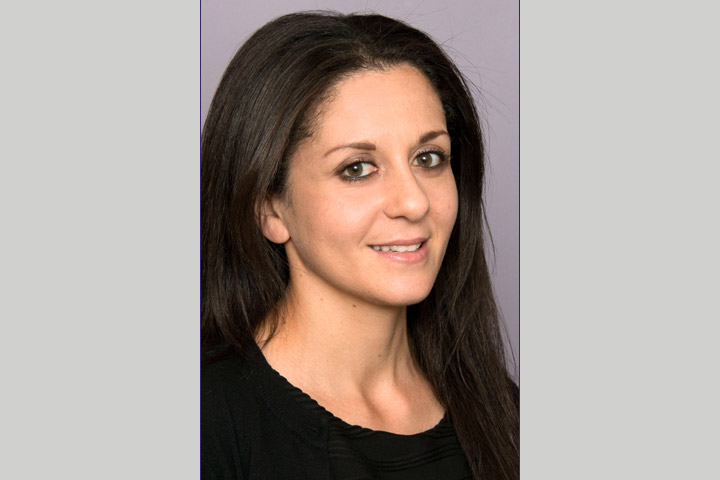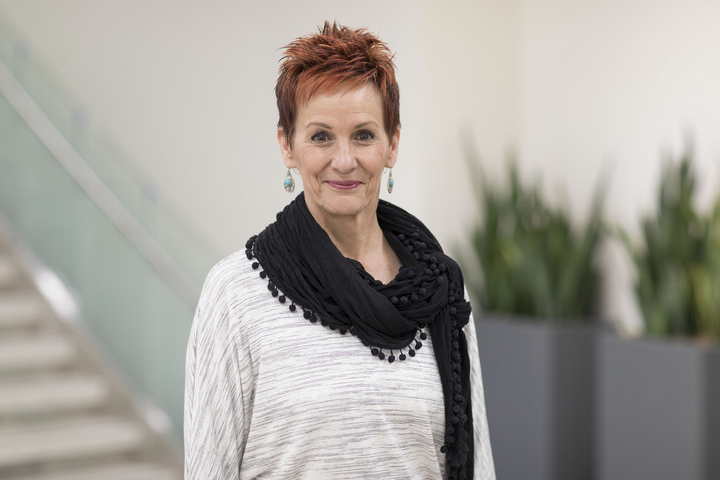Cancer Commons: Democratizing Cancer Care

A diagnosis of pancreatic cancer comes with its own very special brand of dread.
The disease remains largely incurable and effective treatments that can prolong life seem few and far between. Hope comes in the form of research. And from those discoveries change is happening in terms of more effective therapies and a deeper understanding of the basic biology of the disease that can help more targeted treatments become a reality for more patients. But how is the average patient supposed to make sense of an overwhelming diagnosis and know they are choosing the right options at the right time? That’s where Cancer Commons comes into play.
Cancer Commons is a philanthropic effort that brings together patients, physicians, and scientists to ensure that people with advanced cancer can identify their best possible treatments. Leveraging the power of technology and professional expertise, Cancer Commons analyzes an individual’s case and then recommends clinical trials and off-label treatments that may be appropriate for them, based on scientific evidence. Pancreatic cancer patients will have access to a one-on-one consult with a Ph.D.-level expert, which includes recommendations from a “virtual” tumor board that brings together experts in the field. All services are free of charge. Lola Rahib, Ph.D., Director of Scientific and Clinical Affairs and Lead Scientist in Pancreatic Cancer, made time to speak with Let’s Win about how Cancer Commons may be able to help you.
How did you become involved with pancreatic cancer?
My Ph.D. is in biomedical engineering. My first exposure to pancreatic cancer was working with pancreatic cancer cells in the laboratory. But then my real experience was honed for the six-plus years I worked with the Pancreatic Cancer Action Network. Right now, I deal with all gastrointestinal cancers, but I do have a special interest in pancreatic cancers.
What do you think are the biggest issues pancreatic cancer patients face?
It’s absolutely no secret that pancreatic cancer is one of the most lethal of malignancies and that, in no small part, is due to a late diagnosis when surgery isn’t an option. Although there have been tremendous strides in the last few years alone, there are still too few treatment options compared to other cancers. And although surgery is the only chance for a cure and more people are becoming eligible for surgery due to neoadjuvant treatment, the cancer often recurs. There’s also disparity in care. The truth is not everybody gets the same type of care, and some of that care may be subpar. There is also a lack of access to treatments.
So how does Cancer Commons fit into a patient’s journey?
Our mission is very straightforward in that we want to in a sense democratize cancer care. We want patients and their loved ones to know what is out there for them. We don’t replace a person’s medical care team. Rather, we augment it. We provide science-based information on options in terms of treatment and how those treatments may be able to help patients. We’ll provide a list of personalized clinical trials that a person may be eligible for based on their health, their tumor’s molecular alterations, and treatment history. We can help provide and facilitate molecular testing, which is absolutely vital for pancreatic cancer patients. The National Comprehensive Cancer Network recommends that absolutely all pancreatic cancer patients undergo molecular testing. Identifying molecular alterations can potentially help guide treatment. Most pancreatic cancer patients that come to us have already had molecular testing; this is in part a result of the Know Your Tumor® program. Unfortunately, this is not true for patients with some of the other cancer types. For pancreatic cancer patients, we provide access to our Virtual Tumor Board.
How tough is it to sign up with Cancer Commons?
It’s a fairly quick process, especially if patients have access to their medical records. Sometimes there’s a bottleneck in getting those records, but we can help with that since it’s simply signing a few documents that will give us access. We do things primarily through email and the process starts with a nurse navigator from our gastrointestinal team guiding you through the process, including obtaining your medical records. We also want to learn about your goals and other important factors. You’re then matched with a scientist and the scientist prepares your case for the Virtual Tumor Board. You will then receive a report summarizing the feedback from the Tumor Board and the details of how to access the recommendations.
Is the care team I already have involved with this effort?
It is up to the patient to involve their care team. But the program is designed to work directly with the patient, which I think is very important. However, we are working to set up a process to optimize physician engagement, especially for patients that receive feedback from the Virtual Tumor Board. We have seen that when the physician is involved, it is much easier for the patient to navigate their treatment options. Patient care is a collective effort; “it takes a village.” Many of these issues are detailed on our website, and people can always contact us too if they have more questions. They really have nothing to lose, and potentially a lot to gain.
If a patient is being treated at a large-volume center their tumors are reviewed by an internal tumor board to help plan treatment. So what’s the value added with a virtual tumor board?
About 80 percent of patients aren’t treated at high-volume centers. Their case may not be reviewed by a tumor board, even if say a doctor in a rural area consults with an expert at a larger-volume center. What a virtual tumor board does is bring together experts from multiple institutions across the country. The board is made up of discovery scientists, physician–scientists and others, all of whom are experts in pancreatic cancer care and research. So what we do is bring the very best minds together to provide a patient options.
Obviously, one option is the clinical trial. Do most people understand what clinical trials actually provide?
I think there is the understanding that clinical trials are testing something new like a new drug or trying older drugs in different combinations, for example. But there is some misunderstanding in that clinical trials are a last resort or that patients are treated like guinea pigs. But I also think that through efforts of advocacy groups and researchers, people have gotten a better understanding. The hardest part for patients I believe is to find out they may not be eligible for a trial based on their treatment history or health status. There are also issues of access. What happens if you can’t travel or you live far from a site offering a trial?
Those are indeed issues for every cancer patient. So can Cancer Commons still help?
Yes, absolutely. The Tumor Board usually provides multiple options for the patient, which can include treatment options, diagnostics, or other consults. The options can also be standard of care if the Tumor Board thinks it may be beneficial. So, it’s not always a clinical trial or new innovative treatment. Each patient is different. The Tumor Board takes into account prior treatments, performance status, molecular profiling, and a person’s goals. Some patients are absolutely willing to travel. Others are not. We always try to find a clinical trial closest to the patient’s home. If a patient wants to try one of our recommendations, which may include the use of FDA-approved drugs off-label, and their oncologist is hesitant, we might suggest a second opinion. And to be clear: It’s always a good idea to have a second opinion. But of course, it is always up to the patient. We follow up with the patient to make sure they have access to the treatment and try to work with them if they don’t.
So Cancer Commons will assist with so-called “expanded access” to drugs for patients?
Much depends on the patient’s goals. Our Tumor Board may recommend, in some instances, the use of certain agents. And let’s say those agents fall under what’s called “compassionate use” or expanded access. That’s how a patient with a serious condition gains access to a drug outside of a clinical trial when no comparable treatment is available. It’s really for patients for whom enrollment in a clinical trial isn’t possible. There is still an FDA protocol that needs to be followed. The drugs can be expensive; in many cases the drug manufacturer covers the costs, but patients may have to pay for extra lab fees, doctor visits, and other things.
Are all cancer patients reviewed by a virtual tumor board?
No, but all pancreatic cancer patients are reviewed and receive recommendations from our Pancreatic Cancer Virtual Tumor Board. The only exceptions are if they are nearing a time in which hospice care is recommended by their treating physician or if they are unable to receive treatment. Patients must also be receiving treatment in the United States. Plus, patients can always refuse a Tumor Board consult, which hasn’t happened yet.
Are you excited about this effort?
Absolutely. It’s necessary, but I also can’t help but think that it’s kind of sad that it’s necessary. A lot of what we do should have been standard of care. We follow up with people over time and that’s how we learn, and it’s always exciting to learn more because that’s how change is made. It’s extremely gratifying to help cancer patients. I remember one of my colleagues saying a patient said they learned more from Cancer Commons in a few weeks than they had in the three years they were being treated. I encourage your readers to visit our site and learn about our founder and our story. It’s actually pretty amazing.
Do you have any advice for pancreatic cancer patients?
Don’t give up hope. The field is changing, and we’re learning more all the time. And if you think we may be able to help, come to us earlier, rather than later. It doesn’t cost a dime, and like with any disease, the earlier you are treated with the right approach at the right time, outcomes can potentially improve.
If you are interested in what Cancer Commons has to offer, visit their sign-up page.
This is the first in a series of articles about Cancer Commons and their potential role in assisting you or someone you love with pancreatic cancer. Stay tuned for updates.






